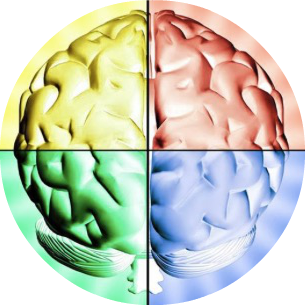8 Myths About Introverts That We Need to Stop Believing

If you’re an introvert like me, it’s likely you feel drained by social events but energized by spending time alone. This has led to many people getting the wrong idea about introversion. People accuse us of being shy or asocial, but the truth is many introverts love being around people–we just can’t do too much socializing. Whereas extroverts gain energy as they spend time with people, introverts will start to wilt after a while and need time out before they can face their next social encounter.
Below are eight myths about introverts that need to be challenged:
Myth #1: Introverts don’t know how to have fun.
An introvert’s idea of fun differs from that of an extrovert’s. For us, a “fun” Saturday night might involve having a meaningful conversation with a friend over dinner or binge watching our favorite Netflix show with our significant other. Introverts don’t feel the need to seek out external forms of stimulation as much as extroverts do. According to Susan Cain in Quiet Power: The Secret Strengths of Introverts, introverts have slightly different nervous systems than extroverts. Ours are more sensitive than extroverts’, so we tend to get enough stimulation just from being around other people.
 What’s your personality type? Knowing your personality can help you leverage your natural strengths. Take the free personality test from our partner Personality Hacker.
What’s your personality type? Knowing your personality can help you leverage your natural strengths. Take the free personality test from our partner Personality Hacker.
Myth #2: Introverts don’t have anything to say.
Introverts avoid small talk because it feels inauthentic. But many of us actually love to talk–when we have something of value to say. Introverts enjoy talking about big ideas or topics that are personally meaningful to us. If you get me talking about something I’m passionate about, you might find it hard to get a word in.
Myth #3: Introverts don’t like people.
Introverts usually have small social circles. We have a few friendships that are very close and long-term. These friends mean the world to us. We may not have many acquaintances because that would mean we’d have to do a lot of small talk.
Myth #4: Introverts are rude and aloof.
Introverts sometimes skip the social niceties because they want to get right to the heart of the conversation. That’s where the good stuff is. Having to first work my way through, “how are you/I’m fine/and how are you/great/how was your weekend/oh that’s good” is exhausting!
Myth #5: All introverts are shy.
Introversion and shyness are two completely different things. According to Susan Cain, “shy people fear negative judgment, while introverts simply prefer less stimulation; shyness is inherently painful, and introversion is not.” Introverts aren’t afraid to interact with people, we just need a reason to do it. You can be an introvert and be shy, or you can be an introvert without the shyness piece.
Myth #6: Introverts are recluses.
Introverts think a lot. We process things internally in addition to talking them through with others. We love to daydream and reflect on our lives. Sometimes we can be accused of being too “in our heads.” But just because we like plenty of quiet solitude doesn’t mean we always want to be alone. Just like extroverts, we need caring people in our lives. We get lonely if we don’t experience true connection and intimacy with others.
Myth #7: Introverts are homebodies.
Many introverts love to head out on a Saturday night just as much as anyone else. However, we need time to recharge our batteries after hanging out with others, especially if crowds and lots of small talk are involved. We may not stay out as long as extroverts and we may need to relax at home the next night to recharge our “social” batteries. This isn’t because we don’t like to go out; it goes back to us having more sensitive nervous systems than extroverts. After a night out, we need time to process all that stimulation.
Myth #8: It’s better to be an extrovert.
Extroverts are fueled by dopamine and feel energized at the possibility of rewards in the environment, such as social status, money, and power. For this reason, extroverts may be better suited for some professions—especially those that are competitive, high-stress, and full of social interaction. However, introverts are responsible for much of the art, music, poetry, and literature of the world. Actor Emma Watson, musician Christina Aguilera, and author J.K. Rowling are all self-professed introverts. Introverts are also highly represented in the fields of science, technology, and politics—Einstein, Bill Gates, Mark Zuckerberg, Hillary Clinton, and Barack Obama are introverts. Our world needs both types of personalities to thrive. ![]()
Read this: Just Because I Don’t Look Excited Doesn’t Mean I’m Not Into This
